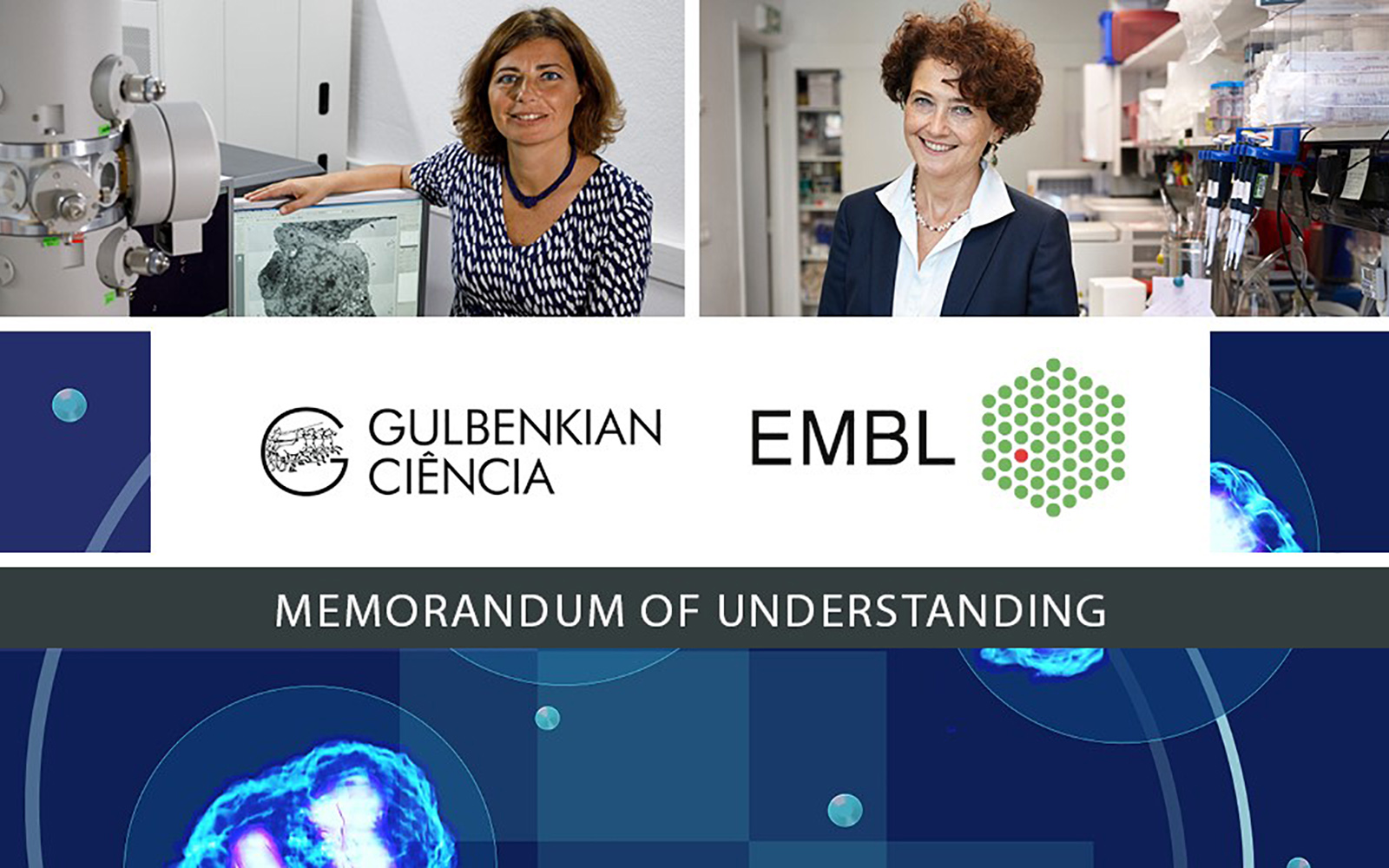EMBL and Gulbenkian strengthen their scientific collaboration

EMBL, Europe’s leading life sciences laboratory, has signed a collaborative agreement with the Portuguese research organisation, the Instituto Gulbenkian de Ciência (IGC), part of the Calouste Gulbenkian Foundation. The agreement focuses on strengthening collaborations between EMBL and IGC scientists in the study of organisms in their environment, particularly in the fields of cell biology, physiology, theoretical biology and biophysics.
With a history of several joint actions between the two institutes, the purpose of the present agreement is to build on existing links and collaborations to further unite complementary strengths. Such strengths lie in promoting scientific collaborations, developing training opportunities, and increasing technology expertise, particularly in electron and advanced light microscopy, genomics, and bioinformatics, as well as in technology transfer activities.
EMBL and IGC share a common vision for research in the life sciences, rooted in the aim of achieving an understanding of the organism across scales and in the context of its changing environment.
Strong synergies already exist between EMBL and IGC, thanks to the presence of EMBL alumni at IGC who foster scientific collaborations between the institutions. Furthermore, EMBL has an existing collaboration agreement with another institution in the country, the Portuguese Foundation for Science and Technology.
In the context of scientific collaboration, EMBL and IGC, together with two other institutions, have been granted funding from the European Commission for a Twinning project on host–microbiome symbiosis research, called SymbNET. The project started in January 2021, with a budget of €1 million over its initial three-year lifetime.
Mónica Bettencourt-Dias, Director of the Instituto Gulbenkian de Ciência, highlights that this MoU is “designed to strengthen collaboration among European scientists, with impactful outcomes for the research institutions, the country, next generations, and for society. We see this agreement as a stepping stone towards a very close partnership between the IGC and EMBL to promote a more sustainable and healthier world.”
“Strengthening the bonds with IGC is a strategic asset for both EMBL and Portugal,” says EMBL Director General Edith Heard. “With EMBL’s new scientific programme ‘From Molecules to Ecosystems’, we will propel Europe into a new era of biological understanding, from the molecular building blocks of life through to the complexity of ecosystems. The science carried out at the IGC fits seamlessly with our focus on life in context, and this agreement further consolidates our already very strong ties with Portugal’s scientific landscape.”
Building on this collaboration, and thanks to the new agreement, EMBL and IGC have begun to apply for joint funding from the Horizon Europe programme within the emerging fields of functional ecology and evolution, in particular host–microbe interactions, and in the fields of theory of living systems and data science. They will offer their scientists access to shared services, scientific facilities, and infrastructure; share best practices in translational research, technology transfer, and innovation; and develop and implement training courses.
